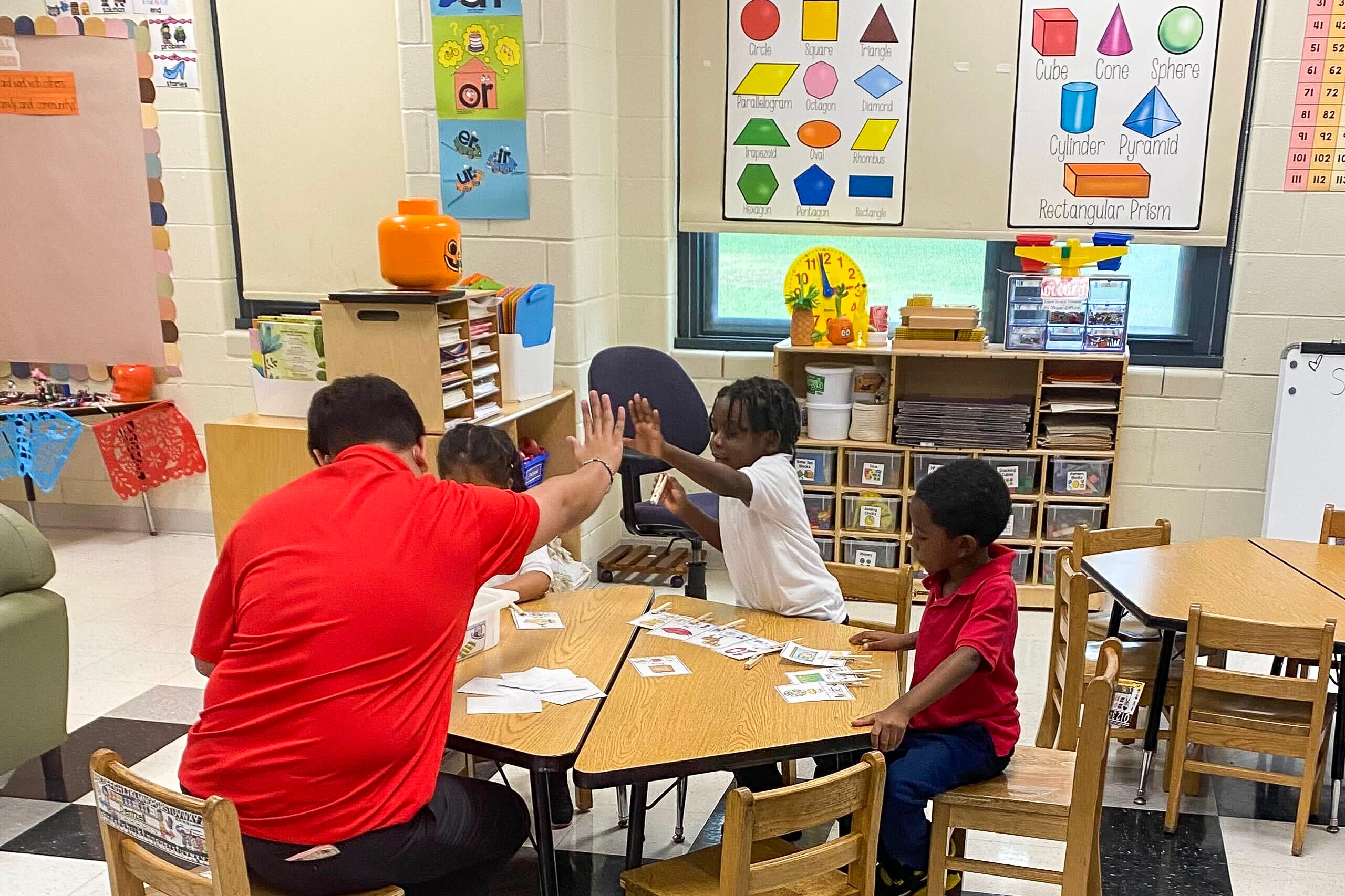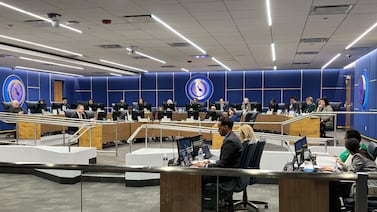Jamila Wilson said that providing child care services to families of essential workers during the height of the coronavirus pandemic made her feel like she was doing “something in a time of crisis.”
Now that the coronavirus pandemic has eased and work has returned to normal, Wilson worries that she might not be able to continue serving families in her community. The emergency federal funding that helped her and other providers keep their doors open expired on Sept. 30.
During a town hall meeting on Thursday, Wilson and members of the Illinois Child Care for All Coalition called on state and local officials to step in to prevent what they see as a looming child care crisis. The child care providers and parents who spoke Thursday night want more funding to ensure that providers are able to make a living wage, and that all families are able to access services, regardless of their income or work status.
The coalition wants state lawmakers to direct funding to Chicago and is calling on the City Council to create a revenue line in the city’s budget for child care.
Without more local funding, they warned, they risk losing their businesses or having to cut jobs, and families who are already struggling to find affordable child care for young children would be even worse off.
“It’s kind of scary,” said Wilson, who has provided home-based child care for over 18 years, when asked about the end of COVID relief funds. “I’ve already picked up a lot of debt during COVID, just so I can keep things afloat.” Wilson mentioned that she has to pay her mortgage, a business loan she took out, and student loans, and support her daughter who is in college.
Kia Jackson has a similar experience. Jackson has worked at a YMCA for 19 years and in child care for 17 years. When she first started working, she had four children and was living on an income of $10 an hour.
“As you all know, that wasn’t enough, and it was difficult,” Jackson said Thursday.
Jackson and her colleagues have unionized at the YMCA and received raises every year, but she said they still have had to take on second jobs just to make ends meet.
“We need to win child care for all in Chicago, so that families can have the child care they need and deserve, and so that we, as workers, can support ourselves and our families,” she told the crowd Thursday.
Long before COVID hit, child care centers struggled to find and retain workers and pay employees living wages or provide benefits like health insurance.
And many families, especially low-income families, have long struggled to find affordable child care, or live in child care deserts. A report from Illinois Action for Children, a nonprofit organization that helps refer parents to child care providers in Cook County, found that families in the county spend $11,500 per year for a preschool-age child at a child care center, on average, and almost $16,500 a year for an infant.
During the pandemic in 2021, the federal government under the Biden administration’s American Rescue Plan Act gave states $24 billion in child care stabilization grants to help parents access child care, and help providers stay in business and increase staff. Illinois received $796.3 million in funding.
But now that the federal coronavirus emergency funding has ended, advocates warn that families and child care providers will be facing the same challenges as before if the city and state don’t help fill the gap.
Mayor Brandon Johnson is expected to put forward his first budget proposal next Wednesday. The city has previously reported a projected $534 million budget shortfall.
There is some hope that the state will step in. Gov. J.B. Pritzker declared that he wants Illinois to be No. 1 for child care during his second term in office. He promised to make new investments in early childhood for the next four years with his Smart Start Illinois plan.
Also, Illinois lawmakers increased state funding in early childhood education and child care.
This year, the General Assembly approved a $250 million increase for early childhood education in the 2024 budget. About $40 million of that went to the Department of Human Services’ early intervention program for young children with disabilities; an additional $70 million went to the Child Care Assistance Program, which helps low-income families access child care; and the Illinois State Board of Education’s early childhood block grant program, which supports creating early childhood education programs, received an additional $75 million.
As the state board prepares for the 2025 budget, early childhood education advocates want to see more money in the budget. One of those groups, Start Early Illinois, wants the state to invest another $75 million in the early childhood block grant and $5 million for children with disabilities.
Samantha Smylie is the state education reporter for Chalkbeat Chicago, covering school districts across the state, legislation, special education, and the state board of education. Contact Samantha at ssmylie@chalkbeat.org.






